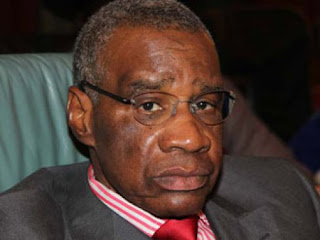 |
| A rural Nothern Nigerian houses |
Can the United States of America afford to be indifferent to developments in Nigeria? The answer is a categorical no! Reason is that there is a strong trade relation between both coun-tries, mostly on oil. It is worth over $42 billion a year and growing. In 2010, the two countries entered into a Bi-national Commission Agreement, which is de-signed to deepen bilateral relations be-tween the two countries. The strategic interest of Nigeria to the US and indeed the West lies in the fact that she is Africa’s most populous nation, its largest contributor of peacekeepers, its largest producer of oil, and the largest recipient of direct investment by the American private sector in sub-Saharan Africa. It is therefore, natural that the American government cannot ignore the problems facing our dear Nigeria. I reason within the context of the recent statement credited to the US Assistant Secretary of State, Johnnie Carson linking the pervasive poverty in the North with the deadly attacks of the Islamist militant sect, Boko Haram.








